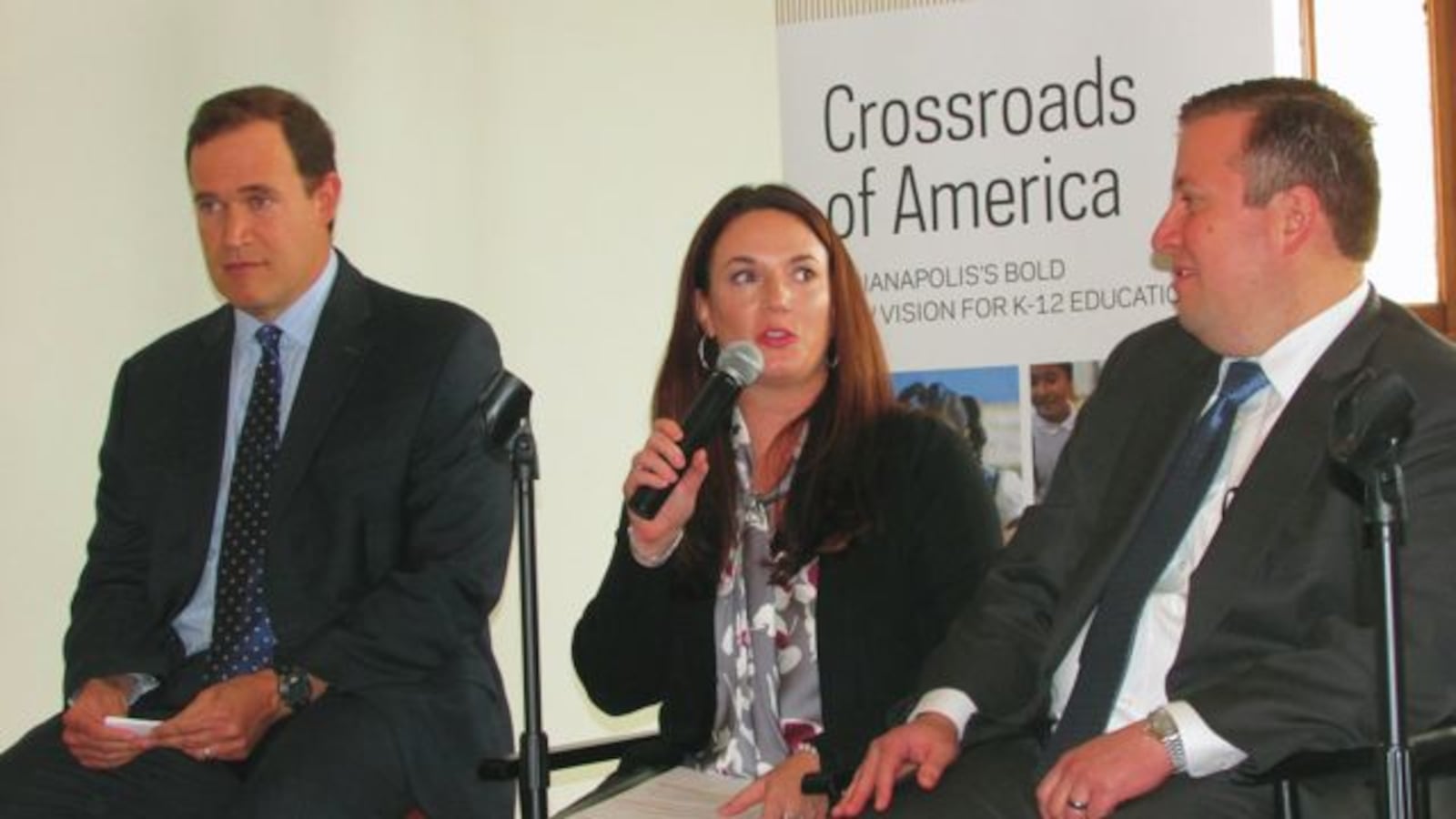A panel of charter, public and private school leaders today hailed Indianapolis’ progress toward working cooperatively to solve education problems but raised some worries about maintaining momentum.
The event at the Indianapolis Children’s Museum to explore changes in Indianapolis’ education landscape in recent years was sponsored by the University of Notre Dame’s Alliance for Catholic Education.
Mickey Lentz, chancellor of the Archdiocese of Indianapolis’ Catholic schools, said even the willingness of the panel to gather for the discussion was evidence of the city’s progress toward collaboration. She was joined by Rick Ogston, the founder of Carpe Diem charter schools; Indianapolis Public Schools’ curriculum officer Tammy Bowman; Indianapolis Deputy Mayor Jason Kloth; and David Harris, CEO of The Mind Trust, an Indianapolis-based school reform group.
“This group of people in this room would not have happened five years ago,” Lentz said.
Among the changes over that time was an expansion of charter schools in the city, led by Mayor Greg Ballard’s sponsorship of most of them, and a new statewide voucher program, which now provides tuition support for thousands of low income children to attend Catholic and other private schools.
Additionally, IPS Superintendent Lewis Ferebee has used his first year on the job to seek partnerships with charter schools, even testifying in favor of a bill that passed the legislature earlier this year to allow the district to hire charter school groups to run its schools.
For IPS, Bowman said, a primary challenge is getting its potential partners, and the wider community, to believe it has a different attitude today toward working with outside organizations to improve education in the city.
“We are a new IPS and we are making changes but many people will not let us move forward,” she said. “They remind us of how IPS used to be and how it used to be run. We want to work collaboratively with everyone to make sure students get what they need.”
Kloth, Harris and Ogston, the charter school advocates on the panel, said that movement has reached a greater level of maturity after a decade of charter schools in Indiana, and its needs are changing.
They called for more funding for charter schools, which they said were hamstrung by costs for buildings and services that school districts get extra aid for but charter schools do not.
Ogston called for more philanthropic support for charter schools, which he said was not as strong in Indianapolis as in Arizona and other states where Carpe Diem operates. More private and public support is needed, he said, if Indiana wants more good charter schools.
“Economically it’s nearly impossible to expand because of the constraints,” he said. “I’d like to see a partnership with the corporations and the cities to attack education and poverty. They go hand in hand.”
Even so, Harris said he believed the market for charter schools had room to grow.
“We don’t have too many great schools,” he said. “We have too many kids who don’t have access to high-quality school options. Any notion that we need to slow down or stop flies in the face of evidence to the contrary.”


